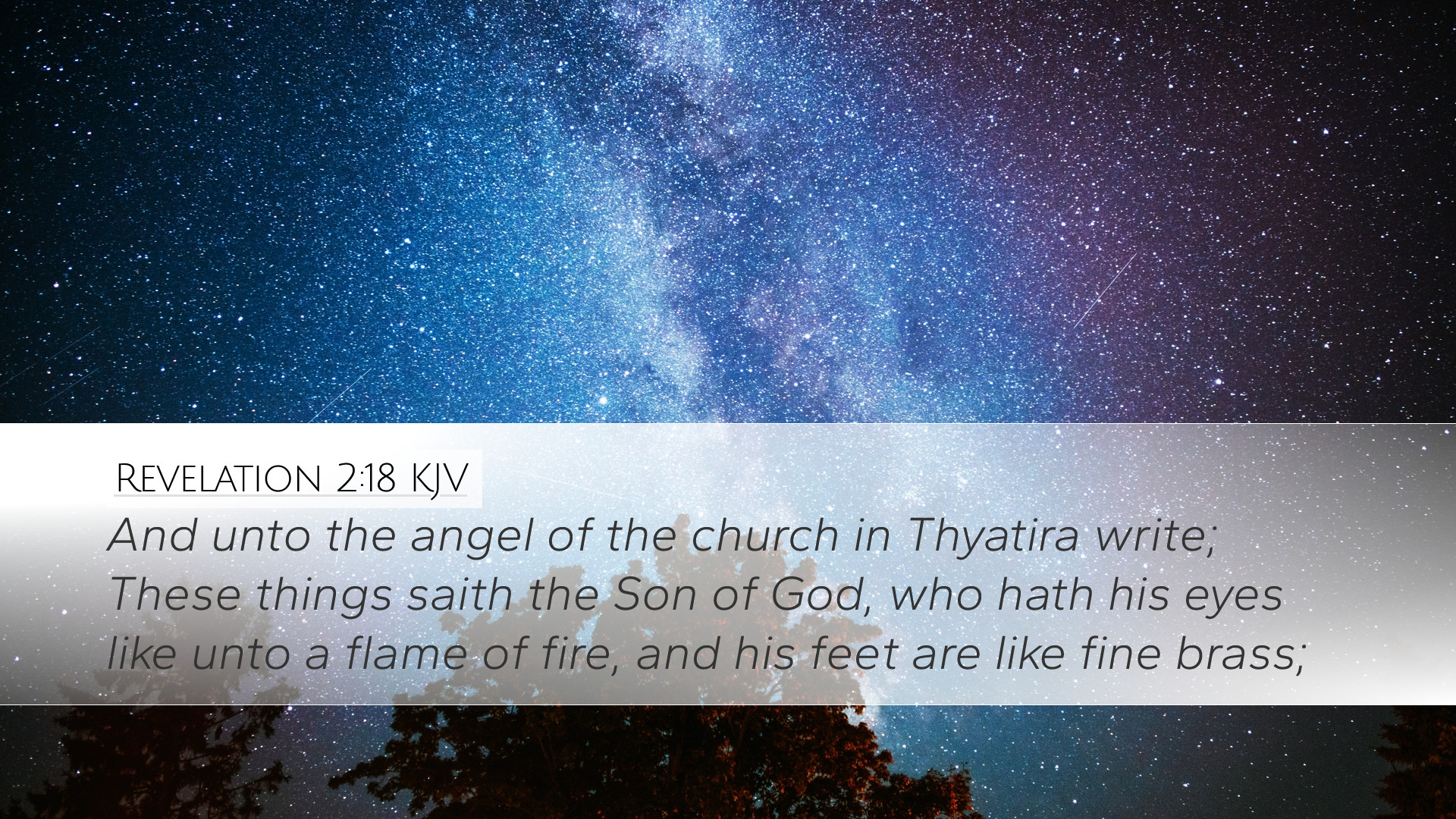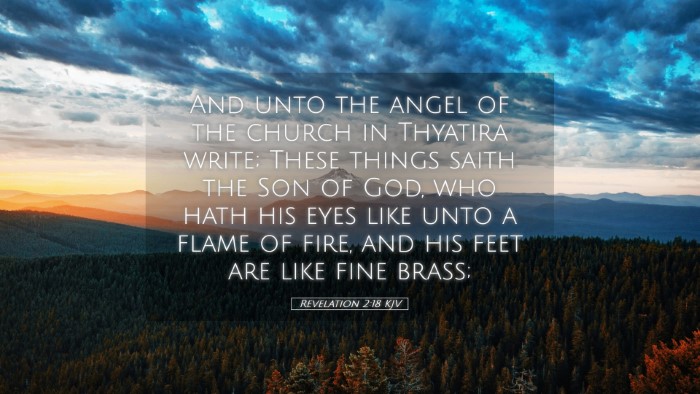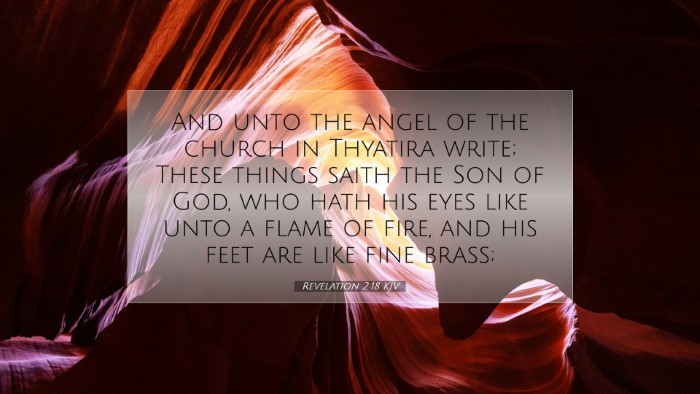Commentary on Revelation 2:18
Introduction: Revelation 2:18 presents a message to the church in Thyatira, known for its commerce and guilds. This verse is part of a series of letters that address various churches in Asia Minor, each with their own strengths and weaknesses. In this commentary, we will delve into the insights provided by respected public domain scholars such as Matthew Henry, Albert Barnes, and Adam Clarke to unpack the meaning and implications of this passage for believers today.
Text of Revelation 2:18
"And unto the angel of the church in Thyatira write; These things saith the Son of God, who hath his eyes like unto a flame of fire, and his feet are like fine brass."
Historical Context
Thyatira: Situated in a valley, Thyatira was a city known for its trade guilds, particularly in textiles and dyeing. Its economic life was strongly tied to these guilds, which often had pagan practices associated with them. This cultural background is crucial for understanding the challenges faced by the early Christians in this city.
Exegesis of Key Elements
-
"Angel of the church":
Scholars like Albert Barnes suggest that the "angel" refers to the pastor or spiritual leader of the church, representing both the authority and responsibility of the church's spiritual health. The message is directed specifically to this leader, indicating that spiritual guidance is intrinsically tied to the well-being of the congregation.
-
"These things saith the Son of God":
Matthew Henry notes the authority with which Christ addresses the church. By referring to Himself as the "Son of God," Jesus is asserting His divine authority and intimate relationship with the Father, emphasizing His sovereignty over the church.
-
"Eyes like unto a flame of fire":
This metaphor is rich in meaning. Adam Clarke points out that the "eyes" of Christ symbolize His ability to see all acts—both good and evil. The "flame of fire" suggests intense scrutiny and judgment, indicating that Christ is fully aware of the church’s situation and moral condition.
-
"Feet like fine brass":
The description of His feet as "fine brass" may denote stability and strength. As noted by Matthew Henry, brass is a metal often associated with judgment and has a connotation of purity and strength, portraying Christ as a firm foundation and righteous judge.
Theological Implications
The message to Thyatira illustrates the compassionate yet corrective nature of Christ. His all-seeing vigilance is not merely for condemnation but for correction and edification. The imagery used in the verse serves to remind the church of Christ’s awareness and involvement in their spiritual life.
Warnings and Encouragements
-
Call to Repentance:
Subsequent verses in Revelation 2 continue to elaborate on the issues within the church, notably false teachings and moral compromise. The call to repentance is a recurring theme throughout these letters and points to the enduring grace of God in seeking the restoration of His people.
-
The Nature of Christ's Authority:
In recognizing Jesus’s authority as the “Son of God,” believers are reminded of His rightful place as sovereign over the church. This truth should instill both reverence and hope in the congregation, affirming that God desires holiness within His people.
-
The Importance of Faithfulness:
Thyatira’s church members were urged to remain steadfast amidst their cultural challenges. Albert Barnes emphasizes the need for Christians to navigate their environments while maintaining their witness, interacting fully with the world but without compromising their faith.
Conclusion
Revelation 2:18 serves as a powerful reminder of Christ’s intimate involvement in the church’s life, His authority to guide and correct, and the imperative for the church to remain faithful amid worldly pressures. The insights drawn from Matthew Henry, Albert Barnes, and Adam Clarke provide a multifaceted understanding of this scripture, offering both admonishment and encouragement to pastors, students, theologians, and Bible scholars alike.


